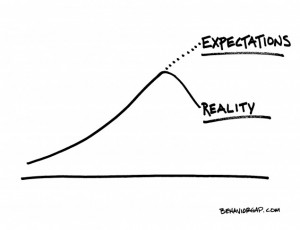Ken H asks:
I am just starting my journey to the concept of making money when you buy. Can I get more examples of what can be bought to use this concept? Where do I learn a strategy that I can start with next to nothing in cash and build up?
Great question, Ken!
The short answer is that you need a source of cashflow.
The long answer:
A high-paying job is ideal (but, only if you invest 30% to 50% of it after tax) …
… if not a high-paying job, then a second source of income.
I like the idea of starting an online business ‘on the side’ and reinvesting 100% of the profits (a) back into the business to help it grow and, whatever’s left over, (b) in income-producing investments.
The ideal investments, of course, are ones where you can get a silent partner to put up 75% – 90% of the money required. That way you can get more investments quicker.
Also, when the bank puts in 80% of the funds required to fund a real-estate acquisition, and it goes up in price by 20%, you have just doubled your money (less the bank’s interest).
And, the best ‘silent partner’ that I know is The Bank. But, the investments that The Bank likes the most – hence, they will lend by far the most on these – is good old-fashioned real-estate.
So, I would reinvest as much of my savings as possible into real-estate, and then wait 10 to 20 years (unless my business grows really fast, in which case I might wait 5 to 10 years.
Sure beats ‘working for The Man‘ for 40+ years, doesn’t it?



